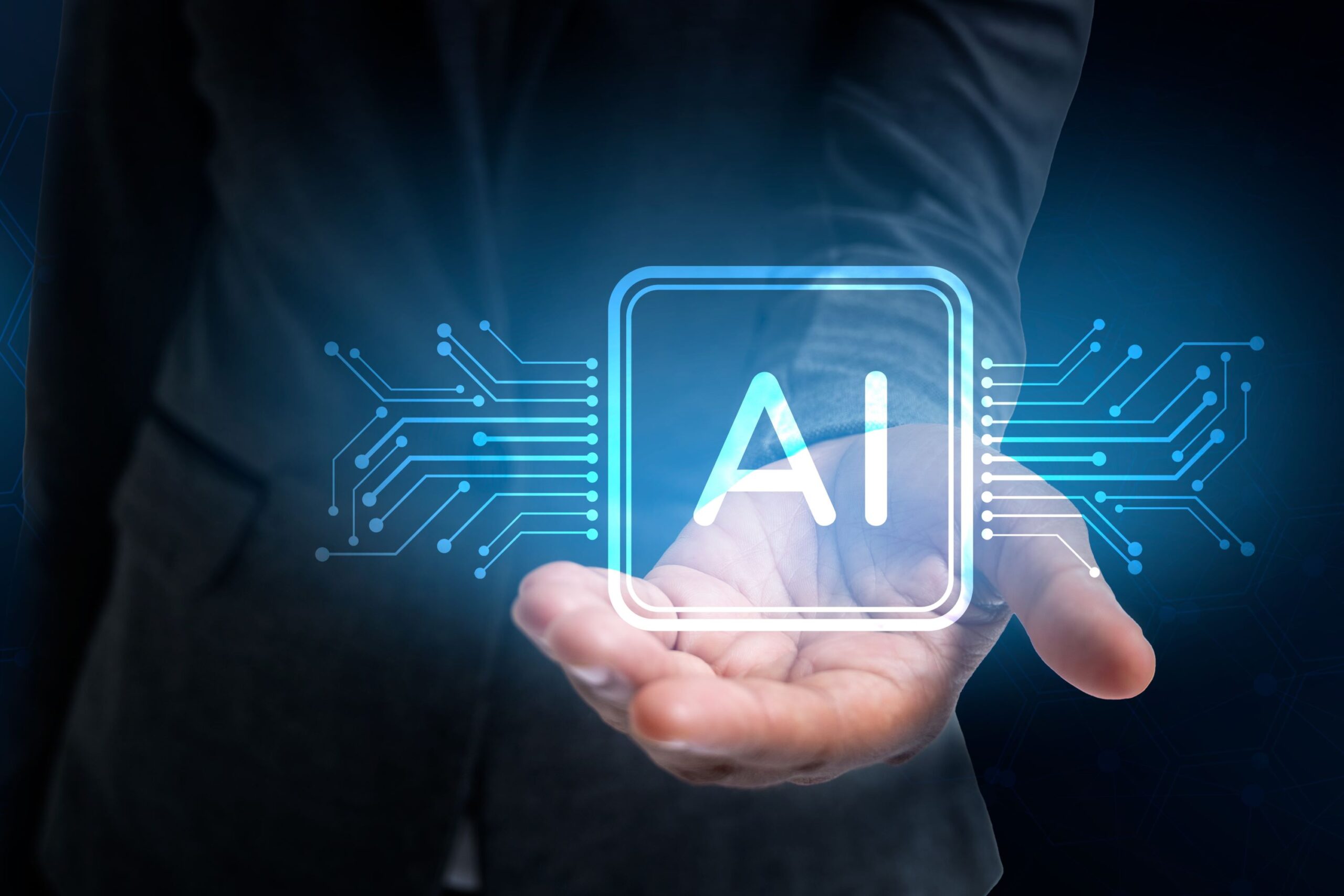As a small business owner, you’re used to solving problems. After all, when you run your own business, it’s a skill set you’re honing almost every day. Small business owners like you are innovators, but that doesn’t mean you don’t face challenges, like finding more customers, scaling your operations, or creating efficient workflows.
When it comes to solving the big problems, you don’t have to do it alone. Artificial intelligence can help!
What is artificial intelligence?
Think of AI as a super-booster for the productivity of your small business. Through “machine learning,” a method of data analysis that identifies patterns and makes decisions, AI learns how to sort data, understand it, and then make decisions according to your rules. The better the data the artificial intelligence learns from, the better decisions it can make.
What’s more, AI creates processes automatically. Once you get it set up, the model continuously learns and improves. As a result, it can make your processes better and more efficient through intelligent automation.
You’d be surprised to know how often AI affects our daily lives. It’s more than major technical advancements, like self-driving cars or the Boston Robotics robodog, Spot. AI can drive small things, like the spam filters in your email. AI is also used in making the recommendations that help you find your next favorite show on streaming platforms.
Right now, most artificial intelligence applications fall under the “narrow” AI category, meaning the application is focused on learning how to do one task really well.

What artificial intelligence isn’t.
AI is still very much in development. Since humans create the data sets that help train AI models, they may miss certain situations and cannot understand cause and effect. For now, AI can enhance human labor in many situations, but may not be able to completely replace it. In short, you’re not likely to see the super futuristic AI from the movies any time soon.
Custom AI vs. out-of-the-box.
Depending on your business needs, you might need a one-of-a-kind AI solution. Custom-built AI is tailored according to your data sets and rules. It can be an expensive investment and may take some time to build and train the model. You may be able to build your own solution, which can be time-consuming, but you can also contract with a company that specializes in developing AI.
Out-of-the-box AI, on the other hand, are pre-built tools, like marketing chatbots or cybersecurity applications. These models have already been trained on data sets and can be almost immediately applied to your small business. Many of these products are software as a service (SaaS) products, which require a subscription.
How to choose AI applications for your small business.
So, how can AI help your small business? It depends what processes you want to automate. Think about areas of your small business where you’re losing time, or your employees are getting bogged down by mundane tasks. You might also consider areas where you need an extra hand, and don’t have the staffing to fill that role yet.
For example, if you own a restaurant, you might want to automate your order-taking process. Maybe your employees spend too much time on the phone and can’t serve the customers in your physical location as well as you’d like. You can set up a bot on your website to automate taking orders to and free up your staff.
It’s always important to factor in the cost of AI tools and the return on investment you could get by using the tool. Plan on starting small. First evaluate the effectiveness of using AI in one area of your small business first before applying automated intelligence to all your processes.
5 ways artificial intelligence can help small businesses.

As a small business owner, you can add AI to your team to enhance the important work your employees are already doing. Here are a few ideas to get you started:
Your new right-hand: AI personal assistants.
If you’ve always wanted an assistant, with AI, you can have one. Got a lot on your to-do list? An AI personal assistant can help remind you of tasks you need to check off the list and when to get them done by. For example, Microsoft’s Cortana can help you sift through your emails and curates a task list for you automatically. These tools help automate the tasks you don’t like or don’t have the time to do. You can also use an AI personal assistant to schedule meetings, write emails, and take notes during meetings.
Chatbots: Customer Service, 24/7.
When your customers have questions, an AI chatbot can help answer them any time, of day or night. These tools can be trained to answer basic customer questions, assist with returns, and track package deliveries. And it’s not just for eCommerce platforms. Chatbots can help restaurants take orders and make reservations or help real estate agents get information from potential home buyers.
The software integrates with your website or social media profile, and many bots are customizable and integrate with other tools you use for your business, like your customer relationship management (CRM) platform.
Customer service chatbots serve to filter out basic questions, leaving the more complex questions for your customer team to resolve. Bots can get basic information upfront, like an order number or account number.
Put your business on the map with marketing AI.
With many small business owners concerned about getting new customers, marketing AI can help you reach the right people at the right time. Using your data, AI marketing and automation triggers ads, deploys campaigns, and automatically sends emails tailored for your customers. There are AI applications for paid ads, social media, and even conversational marketing campaigns.
Marketing AI helps the people on your team optimize and perfect your content, making it more effective with customers, and helping you get more bang for your buck in paid efforts. AI can also help you better understand your customer journey, helping you build better marketing funnels that lead to sales.
Safeguard your systems: Cybersecurity AI
One of the top concerns for small business owners is cybersecurity. Fortunately, AI can help detect threats. The models are trained to recognize malicious programs, and unlike traditional antivirus software, cybersecurity AI can learn and recognize new and emerging versions of malware. After determining a threat, the AI can automatically act to protect your devices from harm.
Other AI cybersecurity tools can create profiles for your employees and their typical behavior. If the AI notices something suspicious happening with your office manager’s account, it acts as the first line of defense in cybersecurity to quickly prevent threats to your business.
Close the sale with AI.
AI can help your team make sales through predictive forecasting and analyzing data to explore what factors and situations are most likely to lead to a prospect becoming a customer. These tools can even optimize pricing too and qualify leads.
More importantly, AI supports your sales team. By automating the time-consuming tasks, AI frees up your sales staff to focus on customer relationships by taking care of data entry or forecasting sales. It can even optimize pricing too. AI can even help train your sales team and help reinforce the knowledge they need to make a sale.
Final words.
As a small business owner, you’re always innovating and trying to take your small business to new heights. With AI, you can augment and improve the processes and procedures, helping your team be more effective and efficient. Do you use AI at your small business? Drop us a note in the comments and let us know what tools you like to use.
Fiber internet for small businesses.
You want the best for your small business – the best employees, the best products, and the best technology.
To get the best internet for your small business, think about getting fiber internet. It’s fast, reliable, and built for business. Plus, it can power all your fancy AI applications.








